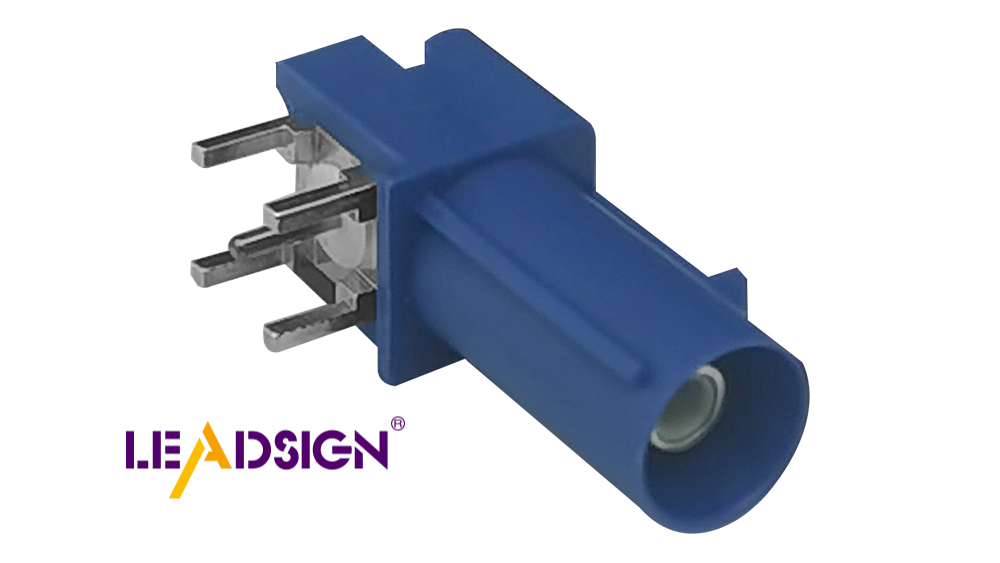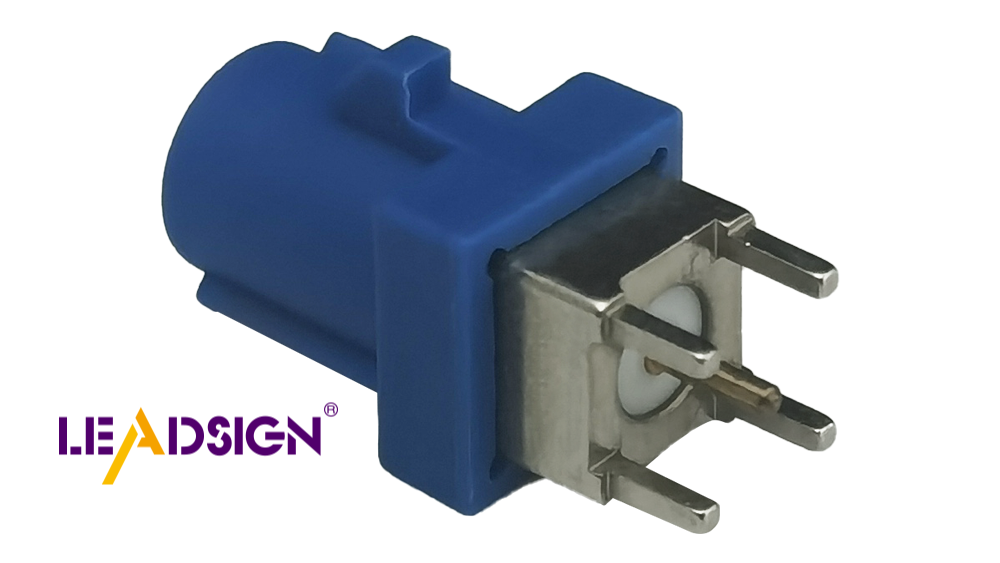Comparing Vehicle Connectors for EVs and Traditional Cars

Electric cars are changing how people think about travel. Unlike gas cars, electric cars need special vehicle connectors to charge. These plugs give lots of power and charge cars quickly. This keeps electric cars ready to drive anytime. By 2030, almost 30% of new cars in the U.S. might be electric. So, knowing about these plugs is very important. They are made to be strong, safe, and work with many chargers.
Key Takeaways
Understanding vehicle connectors is essential as electric cars become more popular, with projections indicating that nearly 30% of new cars in the U.S. could be electric by 2030.
Different types of EV connectors, such as Type 1, Type 2, and CCS, serve specific charging needs and compatibility, making it crucial to choose the right one for your vehicle.
Safety features in EV connectors, including locking systems and ground fault protection, are vital for preventing accidents and ensuring reliable charging.
EV connectors support clean energy sources, helping to reduce pollution and promote environmentally friendly transportation.
While EV connectors offer advantages like fast charging and safety, challenges such as high costs and compatibility issues remain, especially for long-distance travel.
The future of vehicle connectors is focused on faster charging technologies and improved compatibility standards, which will enhance the overall EV experience.
Staying informed about the latest developments in EV connectors can empower drivers to make better choices for their electric vehicles and contribute to a greener future.
Overview of Vehicle Connectors
Vehicle connectors are very important for cars to work well. They connect the car to outside systems for charging and power. For electric cars, these connectors are even more important. They help charge the car faster and work with many chargers.
Purpose and Importance of Vehicle Connectors
Connectors are not just simple plugs. They are made to be safe and strong. In regular cars, they help with GPS, radios, and keyless entry. For electric cars, they move power from chargers to the car battery. Without good connectors, cars won’t work properly or use cool features.
For EVs, connectors also match the car with the charger. This is done using charging standards like SAE J1772 in North America. These rules make charging easier and faster at different stations.
Types of Vehicle Connectors for Electric and Traditional Vehicles
Connectors for regular and electric cars are very different. Regular cars use connectors for things like radios and remote controls. These connectors, like FAKRA RF connectors, are made for high-speed signals and strong connections.
Electric cars need connectors for high power and fast charging. The types of EV charging connectors include:
Type 1 Connector: Used in North America, it charges with AC power. It works with most EVs and follows the SAE J1772 standard.
Type 2 Connector: Common in Europe, it uses AC and DC power. It charges faster than Type 1 and follows the IEC standard.
CCS (Combined Charging System): This connector uses both AC and DC power. CCS1 and CCS2 are popular worldwide for modern EVs.
Tesla Connector: Made for Tesla cars, it uses AC and DC power. Adapters let it work with other chargers too.
Each connector type has special uses. For example, Type 1 connectors are great for home charging. Type 2 connectors are better for public stations because they charge faster. Knowing these helps you pick the right one for your EV.
Key Differences Between EV Connectors and Traditional Vehicle Connectors

Design and Physical Features
EV connectors are made for electric cars' special needs. They handle both AC and DC power to charge batteries. These connectors are small and easy to use. Safety features, like locks and fault protection, stop charging accidents.
Traditional car connectors do simpler jobs, like running radios or GPS. FAKRA RF connectors send signals but don’t carry much power. They are smaller and not as strong as EV connectors. While they work well, they lack the advanced features of EV connectors.
Functionality and Use Cases
EV connectors are key for charging electric cars. They move power from chargers to batteries, helping cars go farther. Some, like CCS, allow slow or fast charging. Type 1 and Type 2 connectors work in different areas and with various chargers.
Traditional connectors help with things like music, maps, and remote controls. They improve driving but don’t power the car. Plug-in hybrids use connectors for charging and other small tasks.
Compatibility and Standardization Challenges
EV connectors face problems with compatibility. Different cars use different plugs, limiting charging options. Tesla uses its own plug, while others use CCS or Type 2. This can make long trips harder without matching chargers.
Groups are working on universal standards like SAE J1772 in North America. These aim to make charging easier for EV owners. Traditional connectors have fewer problems since they don’t need to connect to power sources.
Features of EV Charging Connectors

Charging Speed and Efficiency
EV connectors decide how fast your car charges. The charging speed depends on the connector type and power source. The Combined Charging System (CCS) works with both AC and DC power. This makes it useful for home and public charging spots. CCS connectors allow high-speed charging, cutting wait times at charging stations.
Another connector, CHAdeMO, supports rapid charging with DC power. It skips the car's onboard charger, saving time and boosting efficiency. Picking the right connector helps your EV get the best battery power without delays.
Public chargers often have different connector types for various EVs. This makes charging easy at home or while traveling. As charging infrastructure grows, new connector tech will improve charging speed and dependability.
Safety Features in EV Connectors
Safety is very important for EV connectors. They have features to keep you and your car safe. Locking systems secure the charger to the car, stopping accidental unplugging. Ground fault systems detect problems and cut power to prevent danger.
Modern connectors also check temperature to avoid overheating. For example, CHAdeMO and CCS connectors handle high power safely. Weatherproof designs protect them from rain, dust, and heat, making them reliable anywhere.
Using the right connector lowers the risk of electrical problems. It also keeps your car's battery healthy, lasting longer. These safety features make EV charging easy and safe for everyone.
Environmental Impact of EV Connectors
EV connectors help the planet by using clean energy. Unlike gas cars, EVs can charge with solar or wind power. This lowers pollution and supports green transportation.
Connectors are made to last, reducing waste and replacements. As more people drive EVs, better connectors will improve their environmental impact.
By driving EVs and using advanced connectors, you help the Earth. Switching to EVs and better charging infrastructure cuts emissions and saves resources.
Advantages and Disadvantages of EV Connectors vs. Traditional Connectors
Advantages of EV Connectors
EV connectors have many benefits for drivers and charging. They work with both AC and DC power. This makes them useful for different charging needs. For example, the combined charging system allows slow or fast charging. You can charge at home or public stations easily. This keeps your EV ready to drive anytime.
Safety is another big benefit of EV connectors. They have locking systems and ground fault protection. These features stop accidents and protect your car’s battery. Weatherproof designs make them work in rain, snow, or heat.
EV connectors also help the environment. They are made with strong materials that last longer. This reduces waste and the need for replacements. They also support clean energy like solar and wind power. This lowers pollution and helps green transportation.
Disadvantages of EV Connectors
EV connectors also have some problems. One big issue is their high cost. Good-quality EV connectors are expensive to buy. This makes owning an electric car more costly. It’s a problem in places where EVs are not common yet.
Another issue is compatibility. Different EVs use different types of connectors. Examples include Type 1, Type 2, CHAdeMO, or Tesla plugs. This makes finding the right charger harder, especially on long trips. Drivers may worry about running out of power without a matching charger.
Charging infrastructure is another challenge. Charging stations are growing but still fewer than gas stations. This makes charging less convenient in rural areas. It can be harder to find a station when you need one.
Advantages of Traditional Connectors
Traditional connectors, like FAKRA RF connectors, are simple and reliable. They are cheap and easy to replace or fix. These connectors are used for things like GPS, radios, and remote controls. They don’t need much power or safety features.
Compatibility is another advantage of traditional connectors. They follow common standards and work with many car models. You don’t need special adapters or tools to use them.
Traditional connectors also last a long time. They handle basic tasks without wearing out quickly. This makes them a good choice for regular cars and plug-in hybrids.
Disadvantages of Traditional Connectors
Traditional connectors work well for simple tasks but have limits. They don’t meet the needs of modern, advanced vehicles.
Limited Power Handling
Connectors like FAKRA RF connectors are made for low-power uses. They work for GPS, radios, or keyless entry but not for EV charging. They can’t handle the high power needed for electric or hybrid cars.Lack of Versatility
These connectors are made for specific jobs only. They can’t use both AC and DC power or fit different charging standards. This makes them less useful for cars needing flexible connections.Minimal Safety Features
Safety is very important in today’s cars. Traditional connectors don’t have features like ground fault protection or heat checks. This makes them riskier for high-power tasks.Environmental Concerns
Many traditional connectors aren’t built to last long. They use materials that wear out quickly and aren’t eco-friendly. This leads to more waste and harms the environment.Incompatibility with Emerging Technologies
Modern cars need connectors for fast data and smart systems. Traditional connectors can’t handle these advanced features. They don’t work well with new tech like self-driving or high-tech navigation.
"As more people use EVs and hybrids, better connectors are needed."
Traditional connectors are fine for basic needs but can’t keep up. The auto industry needs smarter, stronger connectors for the future.
The Future of Vehicle Connectors for Fully Electric Vehicles
New Ideas in EV Connector Technology
Electric cars are improving, and so are their connectors. Companies are making connectors that charge faster and work better. A big change is high-speed charging connectors. These let you charge your car much quicker than before. For instance, new DC connectors skip the car’s charger and send power straight to the battery. This makes charging fast and easy.
Another cool update is smart technology in connectors. These connectors talk to charging stations. They can handle billing and manage energy use. This makes charging simple and helps use clean energy. You can charge your car and help the planet at the same time.
Connectors are also tougher now. They are built to handle bad weather like rain or snow. Stronger materials make them last longer and need fewer repairs. This saves money and keeps your car ready to go.
"Electric cars are pushing companies to make smarter connectors."
Moving from Old to EV Connectors
Switching from old connectors to EV ones has challenges. Old connectors, like those for radios, can’t handle EV power needs. EV connectors are made to move lots of energy safely. This change means cars and charging infrastructure need upgrades.
One problem is different brands using different connectors. This makes finding the right charger hard. Groups are working on rules like SAE J1772 to fix this. These rules will let you charge any EV at any station.
More charging stations are also needed. These stations must work with all connector types and offer both AC and DC charging. Governments and companies are building more stations to help EV drivers.
Switching to EV connectors has challenges but is worth it. They charge faster, are safer, and use clean energy. As technology gets better, EV connectors will leave old ones behind. The change is coming, and it’s a good thing.
Vehicle connectors are important for the future of transportation. For electric cars, they help with fast, safe, and easy charging. As more people use EVs, having standard connectors is crucial. This will make charging quicker and long trips simpler. Switching to EV connectors also helps the environment by cutting pollution. Learning about these changes helps you choose and enjoy electric cars. Better connectors will improve EV range, speed, and ease of use. This will lead to a cleaner and greener future for everyone.
FAQ
What do EV connectors do?
EV connectors move power from a charger to your car's battery. They make charging safe and quick, keeping your car ready to drive. These connectors also let the car and charger "talk" to each other. This helps with smart charging and managing energy use.
How are EV connectors different from regular car connectors?
EV connectors handle lots of power to charge batteries. Regular connectors, like those for GPS or radios, use less power. EV connectors have safety features like locks and fault protection. Regular connectors are simple and reliable but lack advanced features.
Why are there different kinds of EV connectors?
Different EV connectors match different cars and regions. For example, Type 1 is used in North America, while Type 2 is common in Europe. Some, like CCS, work with both AC and DC power. Knowing these types helps you pick the right one for your car.
What safety features do EV connectors have?
EV connectors have locks to stop them from unplugging by accident. They also detect problems and cut power to stay safe. Many check temperature to prevent overheating. These features make charging safe and reliable.
Can one EV connector work everywhere?
Not all EV connectors fit every charger. It depends on your car and the station. Standards like SAE J1772 aim to make connectors work everywhere. Adapters can also help connect different types.
How do I pick the right EV connector?
Look at your car's manual to find the right connector. Think about where you’ll charge, like at home or in public. CCS connectors charge fast, while Type 1 is good for home use. Picking the right one makes charging easy and safe.
Are EV connectors good for the environment?
Yes, EV connectors let you charge with clean energy like solar power. They last a long time, so they don’t create much waste. Using them helps make transportation greener and cleaner.
What problems do EV connectors have?
EV connectors don’t always work with every car or charger. This can make long trips harder. They can also be expensive, and some areas don’t have enough chargers yet. These issues slow down EV use.
How are EV connectors getting better?
New connectors charge faster and work smarter. Some send power straight to the battery, skipping extra steps. Others talk to chargers to manage energy better. These updates make charging quicker and safer.
Why are EV connectors important for the future?
EV connectors are key to making electric cars popular. They allow fast and safe charging, helping more people switch to EVs. Better connectors will make charging easier and support cleaner transportation.
See Also
Enhancing Automotive Data Flow With Innovative Connectors
Benefits of HSD Connectors for Automotive Applications
Boosting Data Transfer With High-Speed Automotive Connectors

